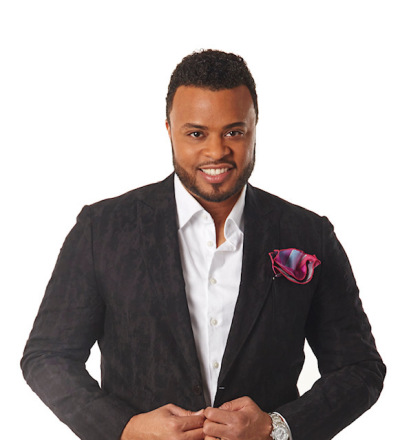COVID-19: Beware to not discriminate in these uncertain times

Last weekend, I went to my local Kroger to stock up on the necessities, hoping to find enough canned and frozen foods to last my family for the weeks ahead. I was especially struck by the diversity of the cashiers and the workers stocking shelves throughout the store. They were a beautiful ethnic kaleidoscope, their families hailing from all corners of the globe. And yet, here they were on the Coronavirus frontlines, doing their part to keep our community well fed through the crisis.
Since 2017, there’s been a steady flow of new policies to slow the flow of both legal and undocumented arrivals. And uncertain times like these can often breed more discrimination and prejudice. Just ask Muslims, who’ve been harassed and called terrorists since 9/11. Or black people, who have so often been profiled by police and other fellow citizens. Most recently, liberal and conservative leaders as well as social influencers have fueled discrimination, making cavalier references to the Coronavirus as the “Chinese virus.” No wonder there’s been an uptick in violence against people of Asian descent.
In Romans 12:16 Paul states, "Live in harmony with one another; do not be haughty but associate with the lowly; do not claim to be wiser than you are." Especially now, in the wake of this pandemic, there is no place for silo mentality, tribalism, bigotry or xenophobia. We have a common, invisible enemy to fight. It doesn’t matter if you’re rich or poor, educated or not, old or young, democrat or republican, or documented or undocumented, everyone is vulnerable to the same virus.
While social distancing is necessary right now. We also have to remember that failing to affirm another person or racial/ethnic group as an equal part of the human family is not only unchristian, it’s dangerous. To stop this virus, we must have the buy-in and support of everyone — including immigrants, no matter their status, as well as Muslim refugees, racial and ethnic minorities and people who speak a different language than we do. So many people —ones who have faced discrimination — are the ones keeping our cities and communities running, even though it’s extremely dangerous for them.
Immigrants, specifically, account for 16.7 percent of grocery and supermarket workers, and 18.2 percent of delivery food workers, according to the immigration nonprofit New American Economy. They are also working in hospitals, treating our most severely ill patients. Nearly 17 percent of all healthcare workers are immigrants. Dig a little deeper, and you’ll find that immigrants account for 28.7 percent of the physicians working in this country, 19.7 percent of surgeons, 15.7 percent of registered nurses and 22 percent of nursing assistants, in addition to the various other positions they hold. Let’s be honest, we needed them, even before this pandemic hit. In 2018, there were almost 13 open healthcare positions for every available unemployed healthcare workers and we need immigrants to help fill that gap.
Immigrants are especially vulnerable during this time because our government does not always prioritize their protection. In fact, President Trump’s ongoing efforts to limit immigration could hurt national containment efforts. If undocumented immigrants avoid testing and medical care because they’re worried about the threat of deportation, it puts all of our safety at risk. That’s one of the reasons why the ongoing ICE raids in sanctuary cities must stop. We need policies that embrace and bolster the rich diversity that makes our country unique and strong, rather than policies that reject people and weaken our communities.
Most people in the community where I live seem to understand this. That day at the grocery store, no one cared whether the employees were American-born. My fellow shoppers — some of them immigrants and first-generation Americans themselves —recognized what was happening: our neighbors were putting themselves at risk to take care of us. All this reminds me that, although this feels like an apocalypse and we’re suffering through a difficult moment in our nation’s history, we're all still human, all in this together. May this be the end of the divisions that had become far too normative and the beginning of rediscovering our common humanity.
As a man of faith, I believe that treating our neighbors as an equal part of the human family is central to the call of God in Christ. In times like these, failing to do so could literally cost thousands of people their lives. COVID-19 has jolted our moral conscience; we are one family with a common enemy. We must do the right thing because each life in the United States is inextricably tied to another, whether that person was born here or not. It’s our duty to be welcoming and hospitable, so that everyone feels safe and informed enough to make the right decisions for their families. We are gaining the valuable lesson that social distancing is not equal to social isolation. Sticking together and attending to the welfare of another person is the only way to get through this beautiful thing called life.
Antipas L. Harris, D.Min., Ph.D., the president-dean of Jakes Divinity School and associate pastor at The Potter’s House of Dallas, TX.




























